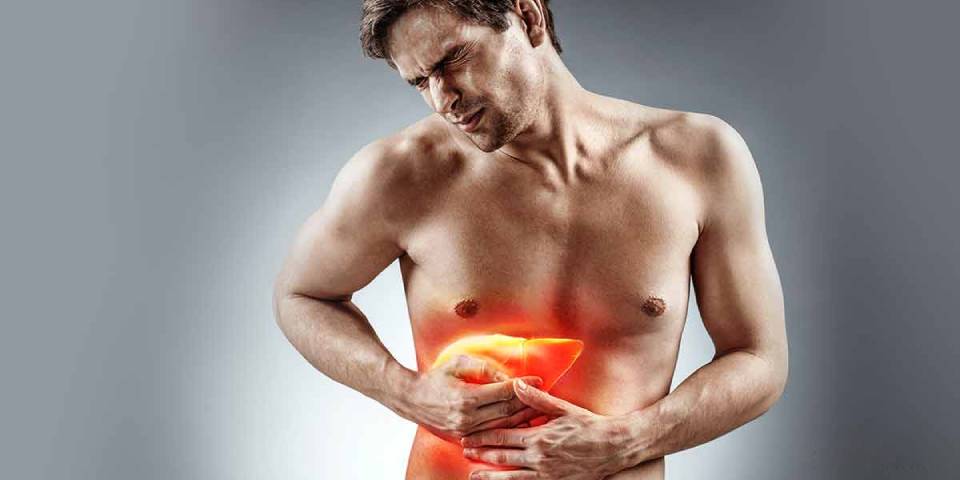
- May 1, 2023
- Dr. Vikrant Kale
- 0 Comments
- Liver Disease
Liver Cirrhosis: Symptoms, Causes, and Treatment Options
What is Liver cirrhosis?
Liver cirrhosis is a chronic condition that affects the liver, causing irreversible damage and scarring. It is a serious health problem that can lead to various complications if not addressed properly. Understanding the signs, causes, and treatment options for liver cirrhosis is crucial for early detection and effective management.
In this blog, the best Gastroenterologist & Liver Specialist, Dr. Vikrant Kale, explores the liver cirrhosis disease, symptoms, and causes of these conditions, and treatment options. If Liver cirrhosis disease is affecting your quality of life, Consult today with our Hepatologist & Liver Specialist in PCMC, Pune.
What are the Symptoms of Liver Cirrhosis?
Liver cirrhosis usually progresses slowly, and signs may not be apparent in the earlier stages. However, as the situation worsens, the following signs and symptoms may include:
- Fatigue and weakness
- Loss of appetite and weight loss
- Nausea and vomiting
- Abdominal pain and swelling
- Jaundice (yellowing of the skin and eyes)
- Itchy skin
- Swelling in the legs and ankles
- Mental confusion and memory problems
- Easy bruising and bleeding
- Vomiting blood
- Weight loss
What causes Liver cirrhosis?
Liver cirrhosis can be caused by various aspects, including:
- Chronic alcohol abuse: Extreme and prolonged alcohol consumption is a foremost cause of liver cirrhosis.
- Chronic viral hepatitis: Hepatitis B and C can induce inflammation and scarring of the liver, which can progress to cirrhosis if left untreated.
- Nonalcoholic fatty liver disease (NAFLD): Obesity, insulin resistance, and metabolic syndrome can contribute to NAFLD which can move to cirrhosis over time.
- Autoimmune hepatitis: This is a rare disorder in which the immune system attacks the liver, inducing inflammation and scarring.
- Inherited liver diseases: Some genetic conditions such as hemochromatosis and Wilson’s disease, can cause liver damage and lead to cirrhosis.
How is cirrhosis of the liver diagnosed?
Individuals with early-stage cirrhosis of the liver usually don’t have signs. Often, cirrhosis is first found via a regular blood test or checkup. Dr. Vikrant Kale first serves the physical exam and some tests to identify cirrhosis disease. The Diagnosis of liver cirrhosis includes:
- Physical examination: Our Liver Specialist Dr. Vikrant Kale will perform a physical examination, which may include palpation of the abdomen to check for tenderness, swelling, or the presence of fluid.
- Imaging Tests: Imaging Tests such as ultrasound, CT scan, or MRI may be ordered to evaluate the size, shape, and texture of the liver and to detect the presence of any scarring or inflammation.
- Blood tests: Blood tests can provide useful information about liver function, including liver enzyme levels, bilirubin levels, and the existence of certain antibodies or viruses associated with liver disease.
- Liver biopsy: A liver biopsy concerns the removal of a small sample of liver tissue, which is then studied under a microscope to confirm the presence and extent of liver damage and to determine the reason for the cirrhosis.
- FibroScan: Fibroscan is a specialized ultrasound sometimes utilized instead of a liver biopsy to find out the quantity of fat and faulty tissue in the liver.
What are the treatment Options for Liver Cirrhosis?
Dr. Vikrant Kale’s treatment options for liver cirrhosis depend on the underlying cause and the extent of liver damage. Treatment options may include:
- Lifestyle changes: Foregoing alcohol, adopting a nutritious diet, and engaging in regular exercise can help prevent further liver damage.
- Medications: Depending on the underlying cause, medications may be prescribed to manage signs, decrease inflammation, and prevent complications.
- Management of complications: Liver cirrhosis can lead to complications like ascites (fluid buildup in the abdomen), hepatic encephalopathy (brain function impairment), and portal hypertension. Treating and managing these complications is important for improving quality of life.
- Liver transplantation: Liver Transplant is the final option when liver cirrhosis can not be controlled by medicine and other ways. Transplantation offers a chance for a better quality of life and prolonged survival.
How Can Liver Cirrhosis Disease Be Prevented?
Liver cirrhosis is a chronic and progressive disease that can result from various factors, such as chronic alcohol abuse, viral hepatitis, non-alcoholic fatty liver disease (NAFLD), autoimmune diseases, and other less-ordinary causes. While there is no guaranteed way to control liver cirrhosis completely, assuming certain lifestyle changes and decreasing your risk factors can help reduce your chances of developing the disease. Here are some tips for preventing liver cirrhosis:
- Limit alcohol consumption
- Prevent viral hepatitis
- Maintain a healthy weight
- Avoid exposure to toxins
- Practice Good Hygiene
- Regular Medical Check-ups
By taking proactive measures to reduce your risk factors for liver cirrhosis, you can help prevent or delay the onset of this serious disease. If you have concerns about your liver health, consult Dr. Vikrant Kale to determine the best course of action.
Conclusion:
Liver cirrhosis is a serious condition that requires early detection, proper management, and lifestyle modifications. Recognizing the symptoms, understanding the causes, and exploring the available treatment options are essential for individuals at risk or already diagnosed with liver cirrhosis. If you suspect you may have liver cirrhosis or exhibit any related signs it is crucial to consult Dr. Vikrant Kale, the best Liver Disease Specialist in PCMC, Pune for a comprehensive evaluation and appropriate guidance. With the right treatment and management, it’s possible to slow down the progression of the disease and improve the quality of life.

